Photos: Mummies and Figurines Discovered in Ancient Cemetery at Luxor
Artifacts from tomb
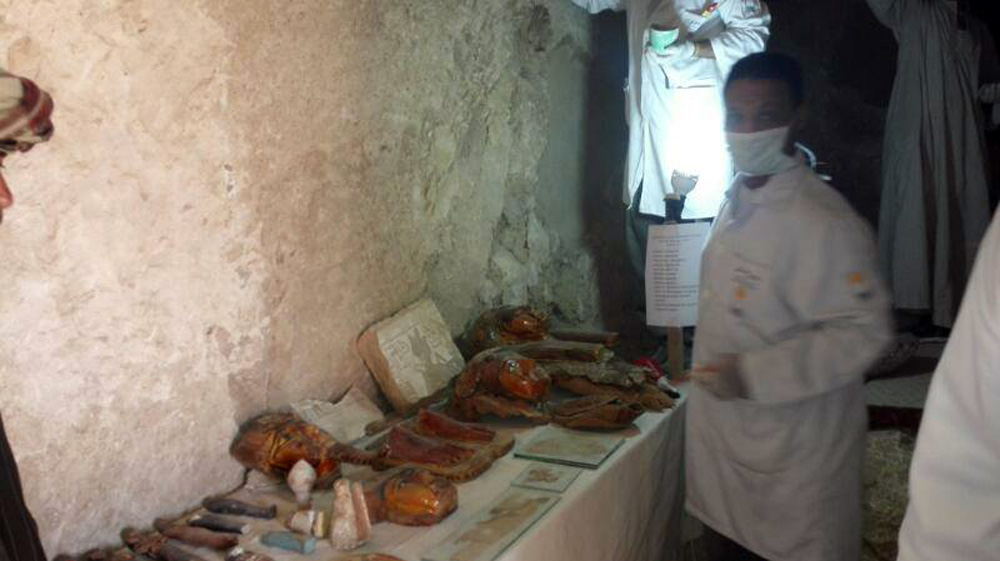
Archaeologists have uncovered a large funerary complex holding several mummies and more than 1,000 figurines in an ancient cemetery at Luxor, in Egypt.
Assorted artifacts found in the tomb complex can be seen in thispicture. They include mummy masks, the remains of coffins and ushabtifigurines which were meant to act as servants for the deceased in theafterlife.
[Read the full story on the Luxor mummies]
Human remains
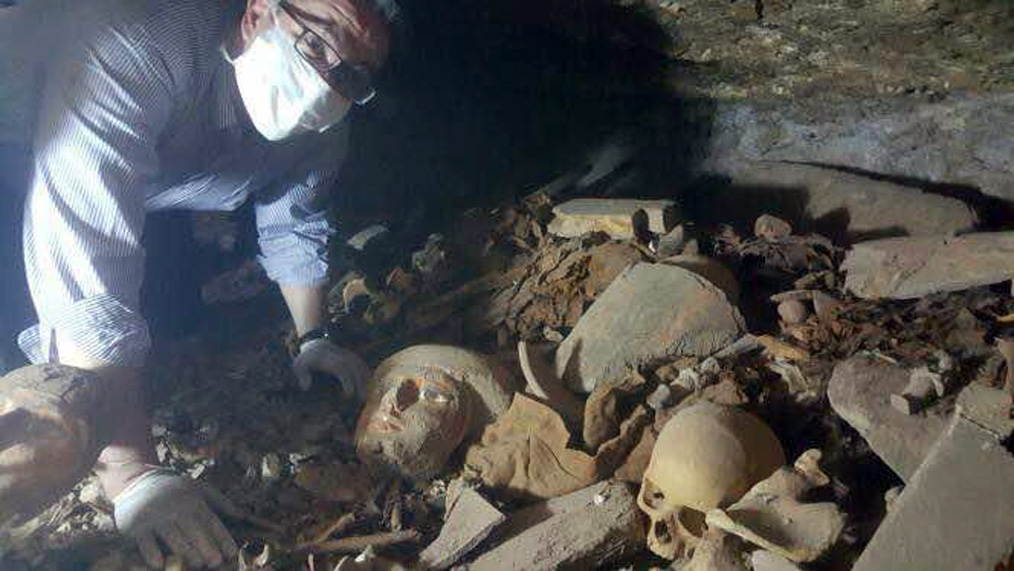
The tomb complex contains the remains of numerous coffins, skeletonsand assorted artifacts. Excavations are ongoing and part of thecomplex has yet to be uncovered.
Remains in Tomb
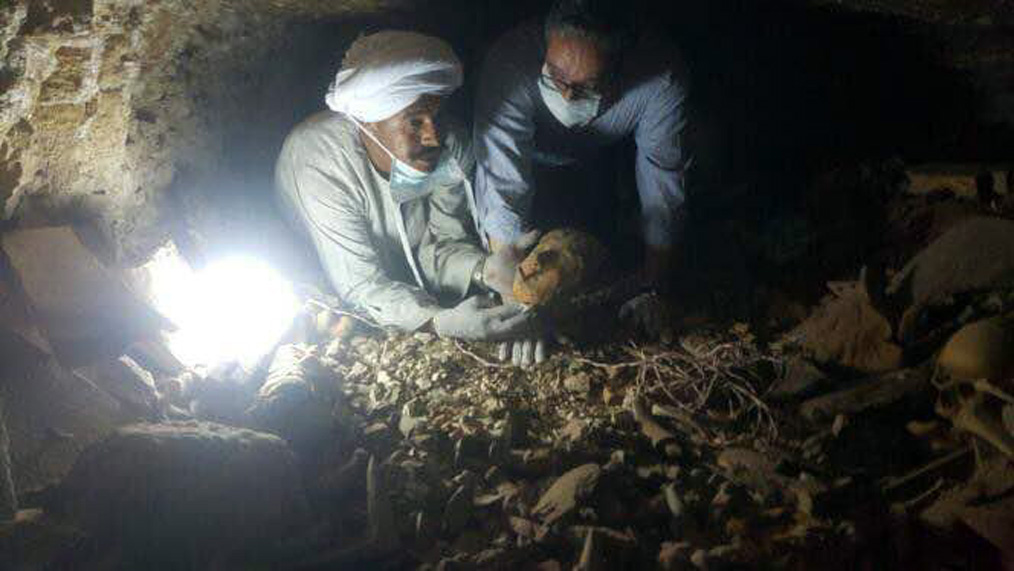
More mummy remains found in the tomb complex. Archaeologists believe that at least part of the tomb complex was originally build for Userhat, a judge who lived in Luxor sometimes during Egypt's "New Kingdom" period (1550-1070 B.C.) Sometime after the "New Kingdom" period ended the tomb complex was re-opened and more mummies were put into it.
Shaft
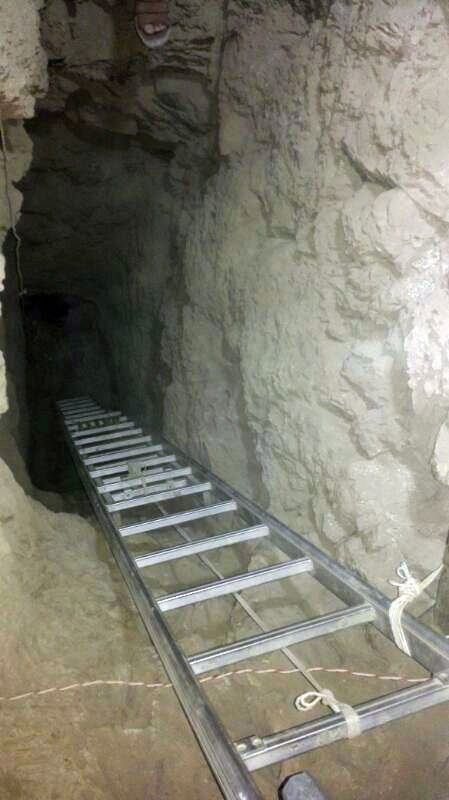
The tomb complex contains a number of interconnected chambers andshafts. It is currently under excavation and has not been fullyunearthed. This photo shows one of the shafts that leads deeper intothe tomb complex.
Work in tomb
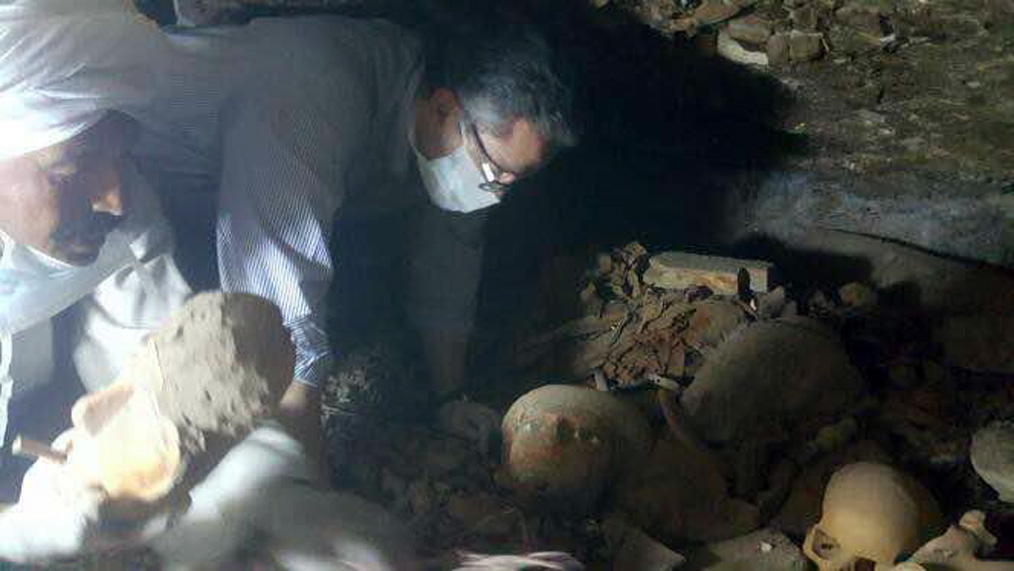
Work in the tomb complex is being conducted by a team from Egypt's ministry of antiquities. The tomb complex is part of a larger ancient cemetery at Luxor which today is often called "Dra' Abu el-Naga."
Sign up for the Live Science daily newsletter now
Get the world’s most fascinating discoveries delivered straight to your inbox.
Dra' Abu el-Naga
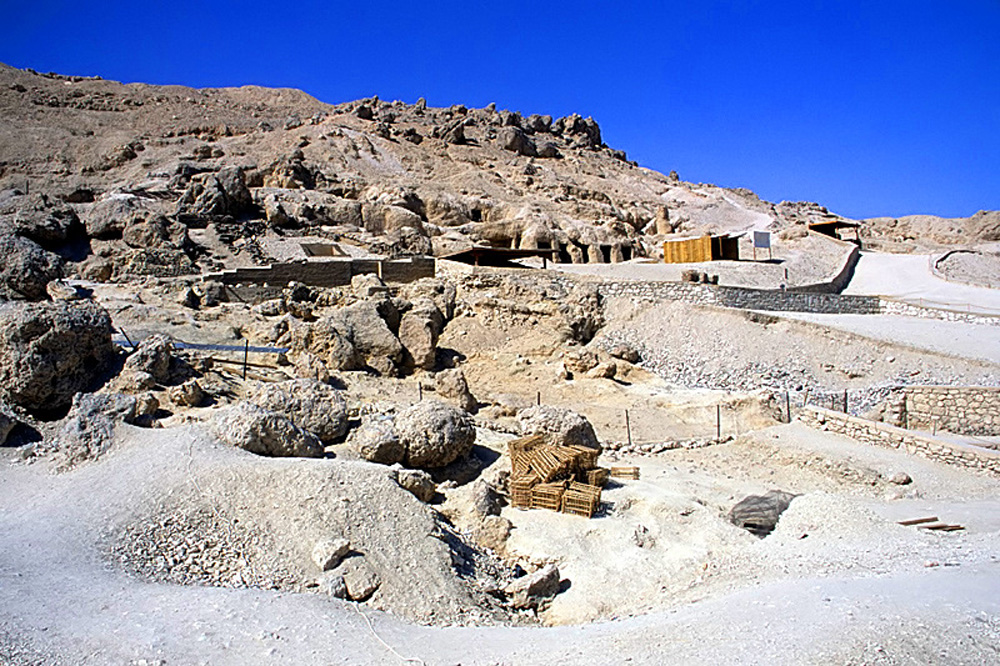
The tomb complex is part of a larger ancient cemetery at Luxor thattoday is often called Dra' Abu el-Naga. The cemetery containsnumerous ancient tombs. This photo of the cemetery was taken inFebruary 2005.
Luxor Temple
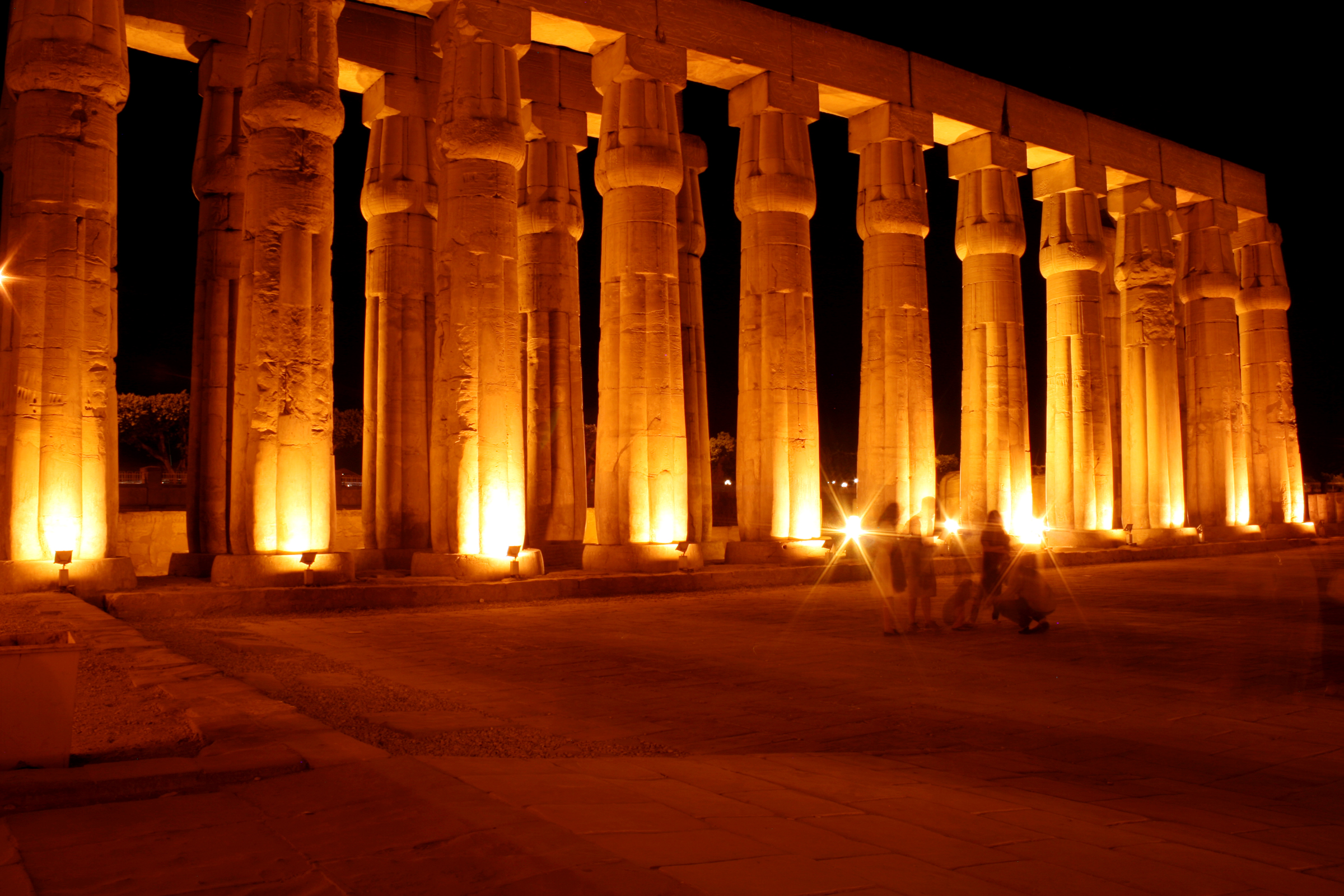
The Dra' Abu el-Naga cemetery is located near the ancient city of Luxor, which at times acted as a capital of Egypt. This photo shows part of the Luxor Temple at night.
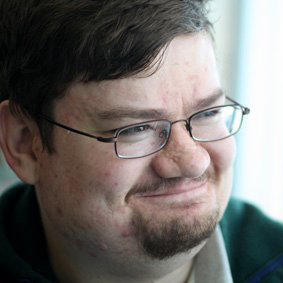
Owen Jarus is a regular contributor to Live Science who writes about archaeology and humans' past. He has also written for The Independent (UK), The Canadian Press (CP) and The Associated Press (AP), among others. Owen has a bachelor of arts degree from the University of Toronto and a journalism degree from Ryerson University.










